
Do you snore at night, yet feel fatigued during the day?
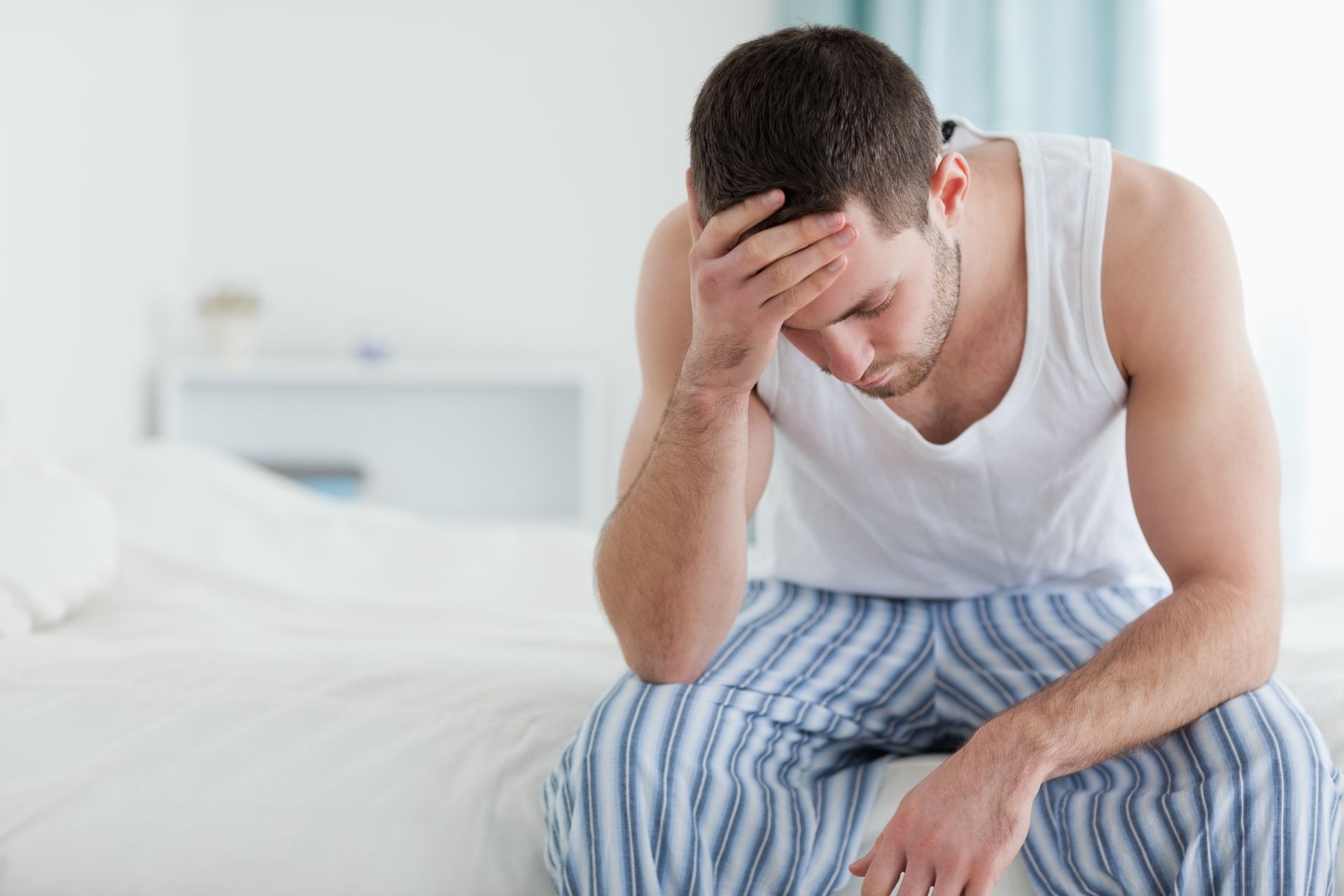
Contrary to popular belief, snoring does not always indicate a good night's sleep.
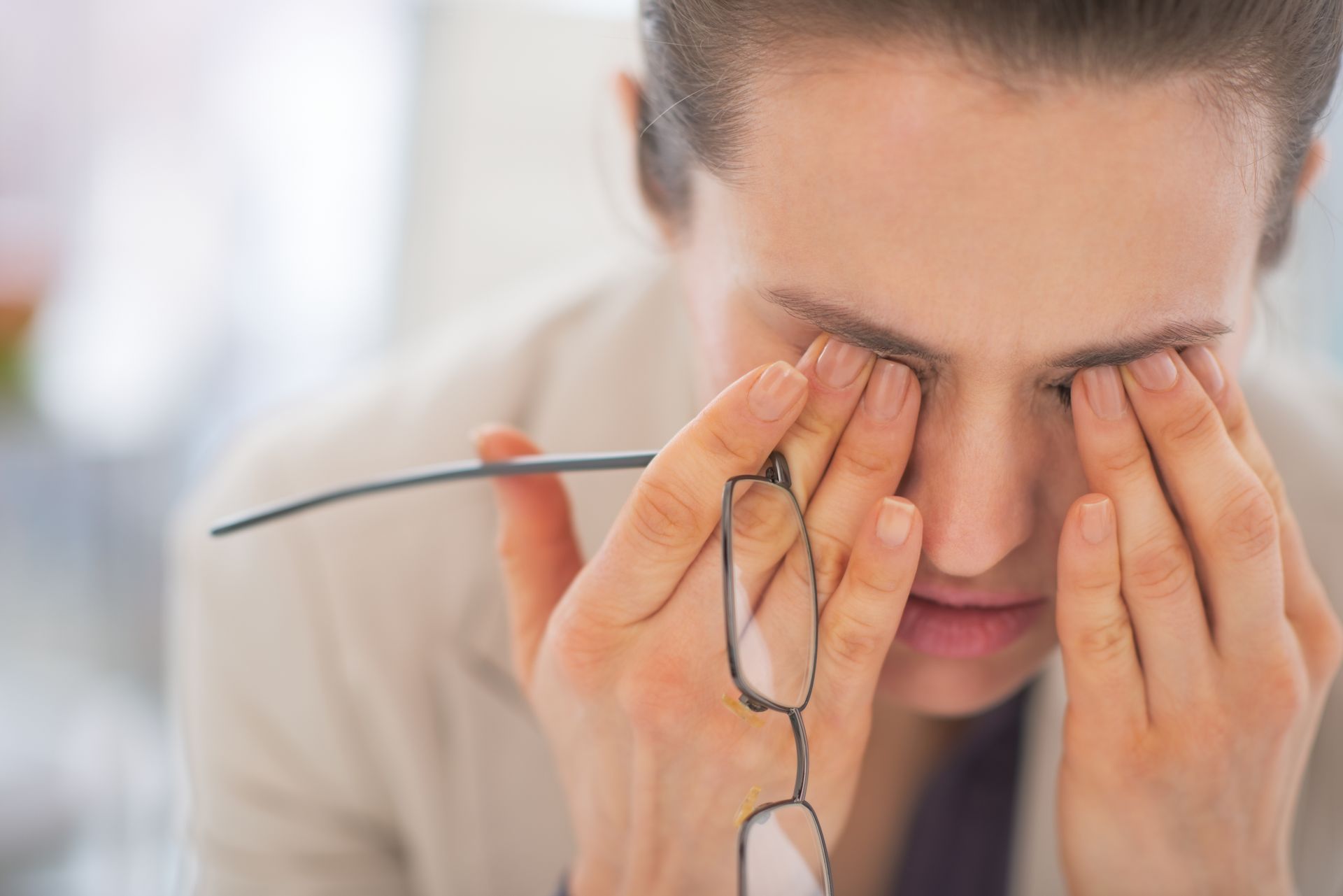
In fact, you could have a common condition called Sleep Apnea.
Click Here to Learn More
What is Sleep Apnea?
Sleep apnea is a potentially serious sleep disorder, in which one starts and stops breathing repeatedly throughout the night - sometimes up to a hundred times a night, for periods of up to ten seconds or longer.
Beyond the immediate detriments on daily performance, concentration, and alertness due to consistently interrupted sleep, sleep apnea can also greatly increase the risk for various health issues, including stroke, high blood pressure, and heart attack.
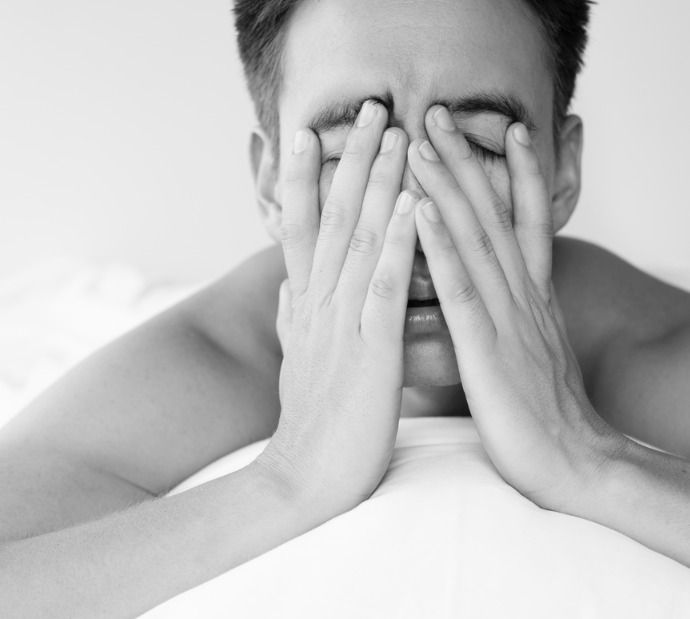
Symptoms
The most common signs and symptoms of obstructive sleep apnea include:
- Excessive daytime sleepiness (hypersomnia) or lack of energy
- Loud snoring
- Episodes of breathing pauses during sleep (witnessed by another person)
- Awakening with a dry mouth or sore throat
- Awakening abruptly with shortness of breath or a choking/gasping sensation
- Morning headaches
- Difficulty staying asleep (insomnia)
- Restless sleep
- Difficulties with attention or concentration
- Forgetfulness, changes in mood, and decreased sex drive
- Waking up frequently to urinate
As a result of many of these symptoms, it is nearly impossible to get a peaceful rest throughout the night. Because of the pauses in your breath, your brain wakes up the body so that you can breathe again, sometimes without you even remembering or realizing it in the morning. Thus, this can often leave you feeling unrested in the morning, as if you hadn’t slept at all, and allowing for the other symptoms to occur.
What Causes Sleep Apnea?
There are two types of sleep apnea:
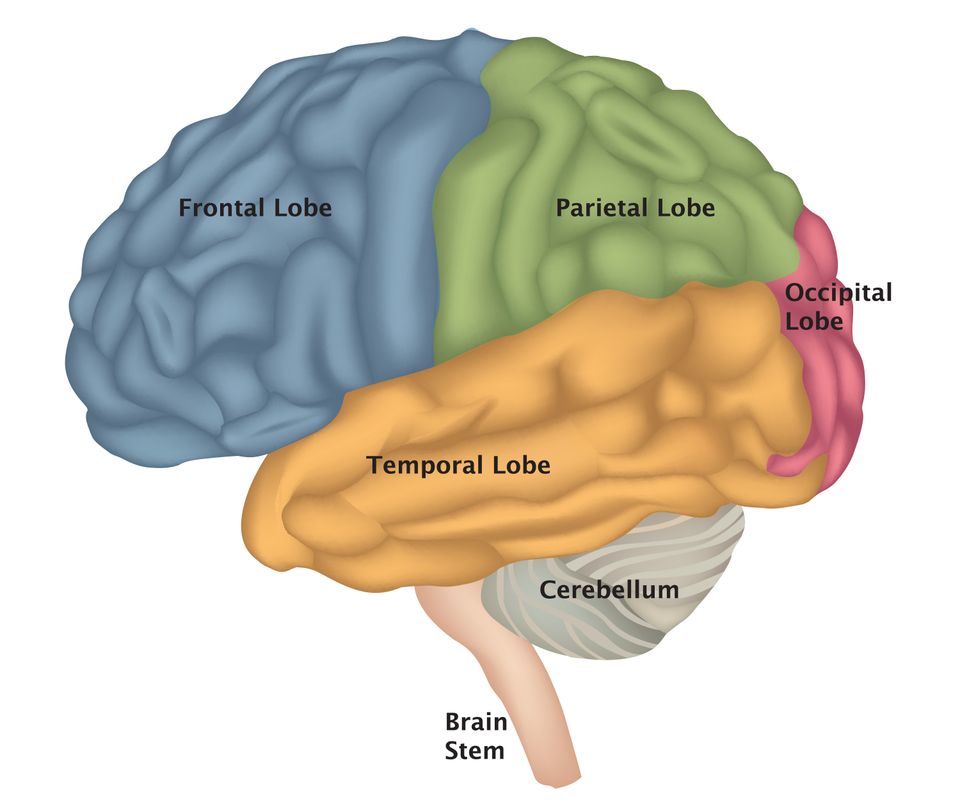
Central Sleep Apnea
Central sleep apnea is the less common form of sleep apnea. It is a neurological disorder
that occurs when the signals from your brain fail to send the proper signals to the muscles that control your breathing.
It can be the result of a number of conditions that affect the ability of the brainstem to transmit information from the brain to the spinal cord.
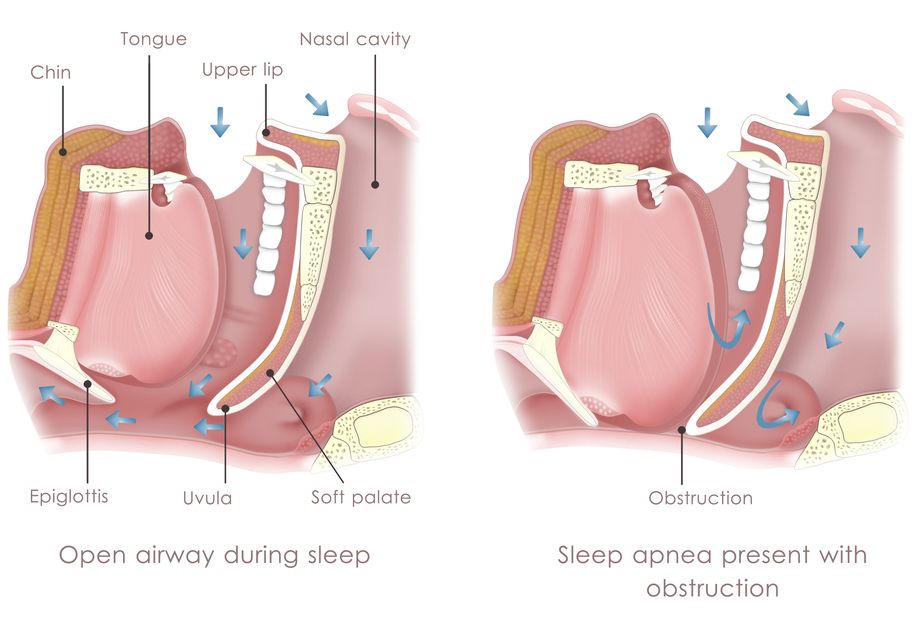
Obstructive Sleep Apnea (OSA)
More specifically, the muscles that support your soft palate, uvula, tonsils, and side walls of your throat and tongue relax, collapsing and narrowing the airway and making it difficult to breathe.
What We Do To Help
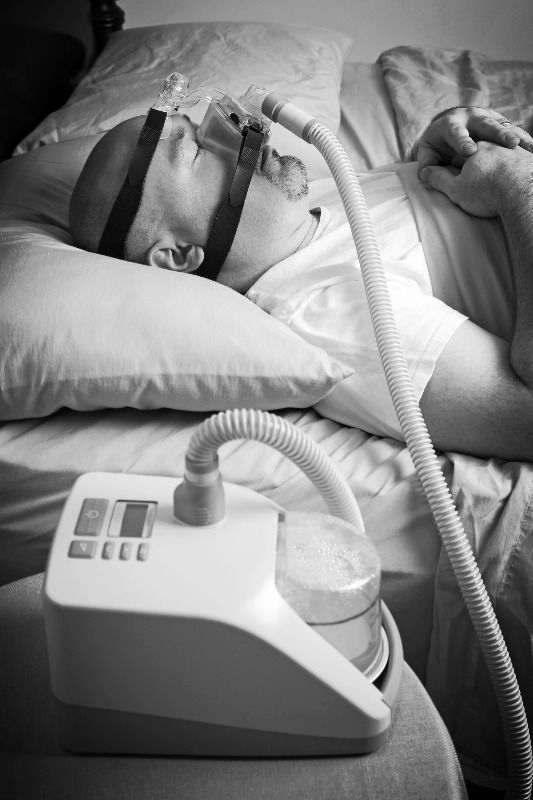
FDA approved and recommended by The American Academy of Sleep Medicine and The American Academy of Dental Sleep
Medicine.
At
SnorefreeNJ, we understand that sleep apnea is a burden - so we don’t want to burden you even more with bulky CPAP masks, machines, and surgeries that only further your discomfort.
Instead, we offer a
simple mouthpiece called
Oral Appliance Therapy (OAT). The mouthpiece works by gently repositioning your jaw while you sleep so that your airways remain open and obstruction-free, allowing air to flow freely and quietly.
The mouthpiece is custom tailored to your specific needs to ensure
comfortability and effectiveness while you sleep, and is small for your convenience in daily routines and traveling.
If you believe you may have Obstructive Sleep Apnea, click the button below for what to do next.
Next Steps
Share
Tweet
Share
Mail
